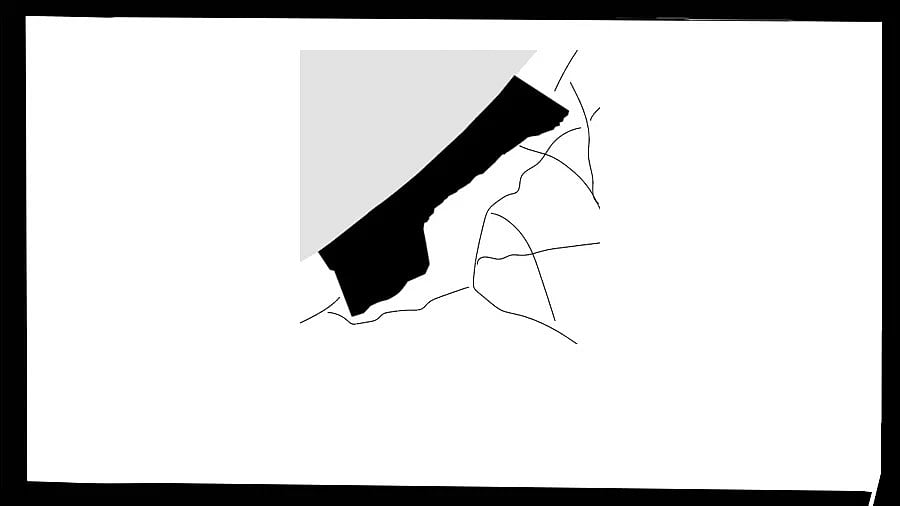
The United States-sponsored UN resolution endorsing President Trump’s 20-point Comprehensive Plan to end the Gaza conflict was adopted by the UN Security Council on Monday, with Russia and China abstaining and all 13 other members voting overwhelmingly in favour.
It was a significant diplomatic victory for the US, which succeeded last Friday in persuading the eight Arab and Muslim states associated with the Trump Plan since its inception in September to endorse the resolution. To secure their support, the US amended the text to include a reference to “a credible pathway to Palestinian self-determination and statehood”, despite strong opposition from Israeli Prime Minister Benjamin Netanyahu. In doing so, the US managed to win over the Arab states while addressing only a few of their concerns, and that too only tangentially. Even so, effective implementation of the Plan’s second phase still appears distant.
About two weeks ago, in a significant development, Hamas returned the body of an Israeli soldier killed in Gaza in 2014, bringing a measure of closure to a painful chapter Israel had sought to resolve for over a decade. Although this gesture has introduced a degree of stability into an already fragile ceasefire, it has not yet led to progress on the transfer of the roughly 200 Hamas militants trapped within the tunnel networks beneath the Israeli-controlled sector of Rafah, near the Egyptian border in southern Gaza.
The US has been urging Israel to accept a proposal granting safe passage to the militants, allowing them to cross the “yellow line” that divides Gaza into areas still held by Israel and those vacated by the Israel Defence Forces (IDF), now under Hamas control. Under the plan, the militants would first disarm and disclose detailed information about the tunnel networks, enabling their subsequent destruction by the IDF.
Fierce opposition has emerged across Israel’s political spectrum, most sharply from the far-right ministers, over the safe passage being given to the militants who, they say, should be detained and interrogated rather than pardoned. Such a stance would, however, directly contradict the core principle of the Trump Plan, which explicitly grants amnesty or exile to militants upon surrender of their arms. Following the public position of Netanyahu that “Israel will not grant safe passage,” Jared Kushner, President Trump’s son-in-law, met him in Jerusalem in an unsuccessful attempt to persuade him to shift his position.
Any violent confrontation between the IDF and the militants could unravel both the ceasefire and the broader framework of the plan. Indeed, when two Israeli soldiers were killed in Rafah two weeks after the ceasefire, Israel retaliated with airstrikes that killed 45 people, including civilians. Acting swiftly to preserve the truce, Washington dispatched its top leadership to Israel. Yet only a fortnight later, Israel launched airstrikes that left 104 Palestinians dead in response to another soldier’s killing in Rafah.
Although the US is expected to reach an arrangement acceptable to Israel, it foreshadows the formidable challenges ahead in demilitarising 43% of Gaza that remains under Hamas control. While the Palestinian Authority (PA) welcomed the UNSC resolution, Hamas issued a statement rejecting the Council’s approval of the US resolution on the Board of Peace, describing the deployment of the International Stabilisation Force (ISF) as tantamount to occupation. Netanyahu welcomed the resolution, highlighting its emphasis on the demilitarisation of Hamas.
Israel’s uncompromising stance is likely to stiffen Hamas’s resistance to disarmament, which they fear would leave them defenceless against the IDF and rival militant factions. One Arab proposal suggests allowing Hamas to relinquish heavy weaponry while retaining small arms, an idea Israel is expected to oppose vehemently.
No middle ground
Getting countries to contribute troops to the ISF, notwithstanding the UNSC resolution, will be an uphill task. Arab states, expected to take the lead in the ISF, have made it clear that they will not deploy troops to disarm an unwilling Hamas, a move that would provoke serious political backlash at home. Non-Arab Muslim countries have shown equal reluctance. A more feasible alternative may lie in the deployment of Palestinian police units currently being trained by Egypt and Jordan.
Egypt has invested considerable effort in persuading various Palestinian factions to agree on a technocratic government. However, Israel remains firmly opposed to the inclusion of any figures associated with either the PA or Hamas in such an administration.
Curiously, the delay in the commencement of phase two of the Trump Plan serves the interests of both the principal actors – Hamas and Netanyahu. Hamas has been steadily consolidating its hold over the areas vacated by Israel. Israel, meanwhile, is rigorously fortifying the “yellow line,” opening fire on any Palestinians who attempt to cross it. Plans are also underway to begin reconstruction in the 53% of Gaza currently under Israeli occupation, aimed at resettling Palestinians who have undergone security vetting.
If implemented, this would leave Gaza effectively partitioned: a “New Gaza,” under Israel’s effective control and resembling the conditions in the West Bank, and an “Old Gaza,” governed by Hamas. Such an arrangement would afford Israel considerable freedom to breach the ceasefire whenever it chooses, much as it now justifies its operations in Lebanon, citing Hezbollah’s failure to disarm as required.
While the Arab states have gained a temporary respite by halting large-scale warfare in Gaza and securing assurances that Israel will not occupy either the West Bank or Gaza, the reality remains grim: nearly the entire population of 2.1 million Gazans is now confined to just 43% of the territory. The situation is a recipe for future catastrophe – one that can be averted only through a profound shift in mindset and a spirit of genuine accommodation among the seven million Jews and an equal number of Palestinians living between the Jordan River and the Mediterranean Sea.
(The writer is a former Ambassador of India to Egypt and former Permanent Representative of India to the Arab League)
Disclaimer: The views expressed above are the author's own. They do not necessarily reflect the views of DH.